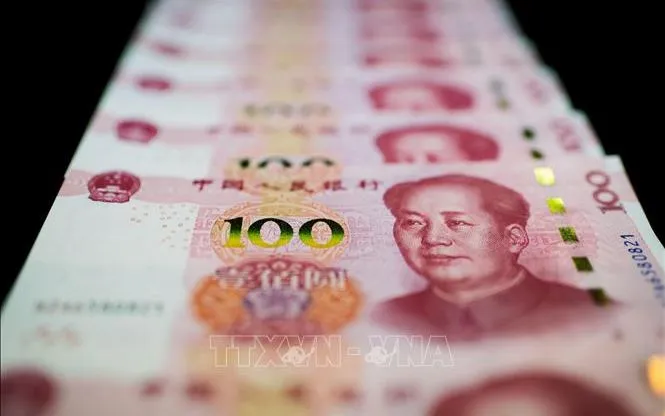
100 Yuan banknotes in Beijing, China. Photo: AFP/TTXVN
According to the Global Times, the International Air Transport Association (IATA) recently announced that it will make the yuan one of the payment currencies for airlines and other suppliers through the IATA Clearing House (ICH), another solid step in internationalizing the currency.
As part of IATA's industry-wide payment system, ICH provides payment services to 581 airlines and other affiliates in the air transport value chain, processing $63.8 billion in 2024. For China's air transport industry, direct payment in RMB will speed up the payment process and reduce exchange risks.
The aviation industry is one of the most globally integrated sectors, so ICH's decision to add renminbi settlement is particularly significant, reflecting the growing acceptance of the renminbi in key international industries, the report said. This breakthrough is not an isolated event, but reflects the continued progress of renminbi internationalization.
From strengthening cross-border RMB services to support the real economy to deepening high-standard opening-up of the financial market, and from supporting the development of the offshore RMB market to expanding the global RMB payment service network, China has continuously promoted a more favorable policy environment for domestic and foreign entities to hold and use RMB.
As a result, the role of money in the international monetary system has been continuously enhanced in areas including cross-border payments, investment and finance, and reserve allocation.
This steady and cautious approach has yielded tangible results. According to a report by the People's Bank of China (PBoC, the central bank) on October 30, in 2024, the amount of cross-border renminbi payments by banks will reach 64.1 trillion yuan (9 trillion U.S. dollars), up 22.6 percent from 2023. In the first half of 2025, the growth momentum will be maintained, with a total of 34.9 trillion yuan, up 14 percent from last year.
In particular, the RMB has become one of the world's top three currencies in trade finance and global payments, and ranks third in terms of weight in the Special Drawing Rights (SDR) currency basket of the International Monetary Fund (IMF).
The paper said that growing international confidence in the yuan is supported by a number of factors, starting with China's steady economic growth. As China's share of global GDP and trade continues to expand, central banks and international investors around the world are increasingly enthusiastic about allocating assets in yuan, recognizing the currency's value as a stable addition to their portfolios.
China's continued deepening of financial market reform and opening up has laid a solid foundation for this process. In recent years, China has made significant progress in easing capital account controls and improving its financial infrastructure.
The establishment and expansion of investment channels such as the Shanghai-Hong Kong Stock Connect and Bond Connect have simplified access to renminbi assets for international investors, while the inclusion of Chinese bonds in major global indices reflects the growing recognition of the quality of the currency by international markets. These advances have transformed the renminbi from a trade settlement tool to a functional currency with significant investment value, increasing its appeal.
China’s growing economic and trade cooperation with emerging markets has fueled a steady demand for renminbi payments. Under the Belt and Road Initiative, economic and trade exchanges between China and participating countries have become increasingly frequent, prompting more and more trading partners to be willing to use renminbi as a means of payment to streamline transactions.
From the perspective of the external environment, the increasing uncertainty surrounding the current monetary system and global financial markets has led many countries to pursue diversified payment solutions. With China's huge economic scale, complete industrial system and increasingly open financial market, the RMB has naturally emerged as an important choice in this pursuit of global currency diversification.
The steady progress of RMB internationalization is a result of the growing strength of China's economy and its deepening opening up, the paper said. This path will continue to expand with the transformation and upgrading of China's economy and the improvement of its financial system. As the RMB is poised to play an increasingly important role in the international monetary system, it will contribute to a more balanced, diversified and stable international monetary system.
Source: https://vtv.vn/dong-nhan-dan-te-tien-sau-vao-he-thong-thanh-toan-toan-cau-100251108064748928.htm








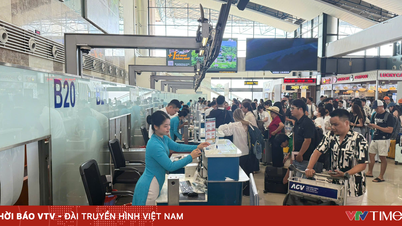
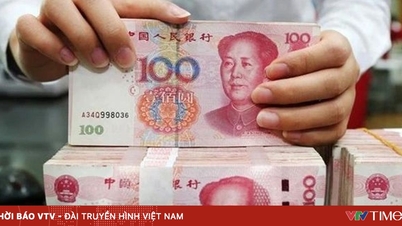
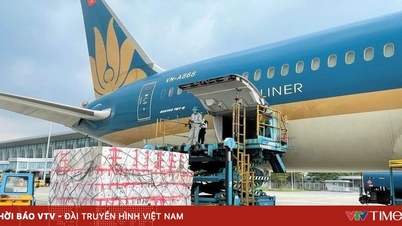
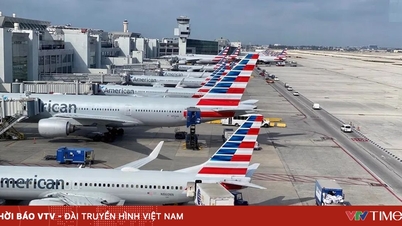
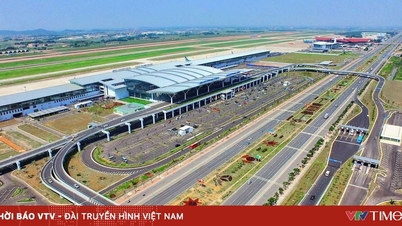









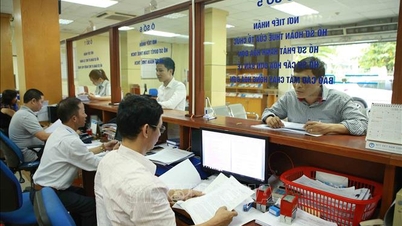











![[Photo] "Ship graveyard" on Xuan Dai Bay](https://vphoto.vietnam.vn/thumb/1200x675/vietnam/resource/IMAGE/2025/11/08/1762577162805_ndo_br_tb5-jpg.webp)


![[Video] Hue Monuments reopen to welcome visitors](https://vphoto.vietnam.vn/thumb/402x226/vietnam/resource/IMAGE/2025/11/05/1762301089171_dung01-05-43-09still013-jpg.webp)


































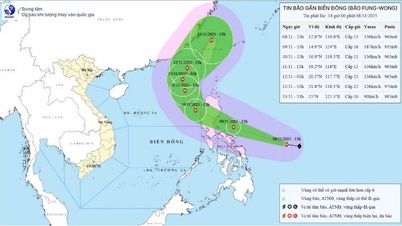








































Comment (0)